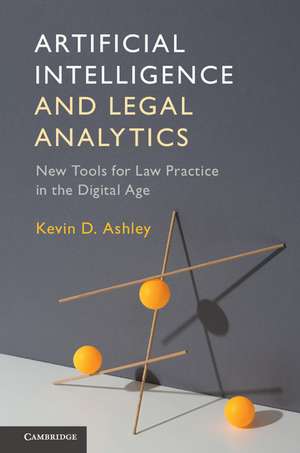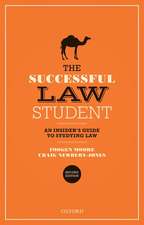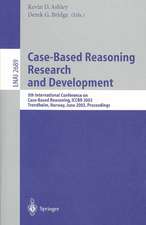Artificial Intelligence and Legal Analytics: New Tools for Law Practice in the Digital Age
Autor Kevin D. Ashleyen Limba Engleză Paperback – 9 iul 2017
| Toate formatele și edițiile | Preț | Express |
|---|---|---|
| Paperback (1) | 337.00 lei 3-5 săpt. | +33.49 lei 7-13 zile |
| Cambridge University Press – 9 iul 2017 | 337.00 lei 3-5 săpt. | +33.49 lei 7-13 zile |
| Hardback (1) | 785.21 lei 6-8 săpt. | |
| Cambridge University Press – 9 iul 2017 | 785.21 lei 6-8 săpt. |
Preț: 337.00 lei
Nou
64.48€ • 67.33$ • 53.37£
Carte disponibilă
Livrare economică 14-28 martie
Livrare express 28 februarie-06 martie pentru 43.48 lei
Specificații
ISBN-10: 1316622819
Pagini: 446
Ilustrații: 111 b/w illus.
Dimensiuni: 151 x 226 x 20 mm
Greutate: 0.74 kg
Editura: Cambridge University Press
Colecția Cambridge University Press
Locul publicării:New York, United States
Cuprins
Part I. Computational Models of Legal Reasoning: 1. Introducing AI and Law and its role in future legal practice; 2. Modeling statutory reasoning; 3. Modeling case-based legal reasoning; 4. Models for predicting legal outcomes; 5. Computational models of legal argument; Part II. Legal Text Analytics: 6. Representing legal concepts in ontologies and type systems; 7. Making legal informational retrieval smarter; 8. Machine learning with legal texts; 9. Extracting information from statutory and regulatory texts; 10. Extracting argument-related information from legal case texts; Part III. Connecting Computational Reasoning Models and Legal Texts: 11. Conceptual legal information retrieval for cognitive computing; 12. Cognitive computing legal apps.
Recenzii
Descriere
The field of artificial intelligence (AI) and the law is on the cusp of a revolution that began with text analytic programs like IBM's Watson and Debater and the open-source information management architectures on which they are based. Today, new legal applications are beginning to appear and this book - designed to explain computational processes to non-programmers - describes how they will change the practice of law, specifically by connecting computational models of legal reasoning directly with legal text, generating arguments for and against particular outcomes, predicting outcomes and explaining these predictions with reasons that legal professionals will be able to evaluate for themselves. These legal applications will support conceptual legal information retrieval and allow cognitive computing, enabling a collaboration between humans and computers in which each does what it can do best. Anyone interested in how AI is changing the practice of law should read this illuminating work.











